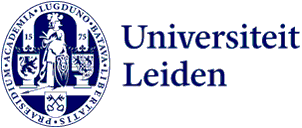Personal development | Transferable skills
Secrets of Self-confidence
Building and maintaining self-confidence (and battling imposter syndrome)
- Target group
- PhD candidate
- Teachers
- Sanne Keulers, Ron de Jong
- Method
-
Training course
- Workload
- 15 hours (one full-day training programme, a half-day follow-up session and preparatory tasks and homework).
- Start dates 2026
- February 5, June 2, September 10, November 10
Why this course?
PhD candidates are often surrounded by high-achieving peers, critical evaluations, and a culture of comparison. It’s no surprise that many struggle with self-doubt and the feeling of being an imposter. Not recognizing your own achievements, listening too much to your inner critic, or placing others on a pedestal can slowly undermine your confidence.
This course helps you build and maintain self-confidence in the demanding academic environment. You will learn how to acknowledge your strengths, protect your self-assurance from external pressures, and develop a supportive inner dialogue. Instead of letting imposter feelings hold you back, you’ll gain tools to stand firmly in your own worth.
Who is this course for?
This course is designed for PhD candidates who:
- Experience feelings of self-doubt or imposter syndrome.
- Struggle to recognize or value their own achievements.
- Want to strengthen resilience against criticism and external pressure.
- Are motivated to develop a lasting, authentic sense of self-confidence.
Topics
The mechanics of imposter syndrome in academia.
- Common pitfalls: undervaluing achievements, harsh self-criticism, giving away confidence.
- Building new habits: acknowledging successes, practicing self-compassion, reframing differences.
- Handling criticism in a constructive way.
- External factors that challenge confidence – and how to shield yourself from them.
- The link between stress, recovery, and maintaining confidence.
End result of the course:
- Insight into the roots of self-doubt and imposter feelings.
- Practical strategies to build and sustain self-confidence.
- A more supportive inner dialogue through self-compassion.
- Resilience against external criticism and comparison.
- A healthier balance between effort and recovery, reducing stress-driven insecurity.
Format
The training combines reflection, discussion, and practical exercises. Participants explore both internal and external factors that influence self-confidence and work on personal strategies to strengthen it. Peer exchange plays an important role, helping participants see that they are not alone in these struggles.
